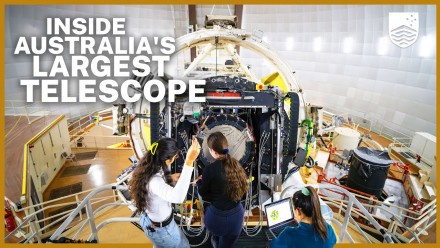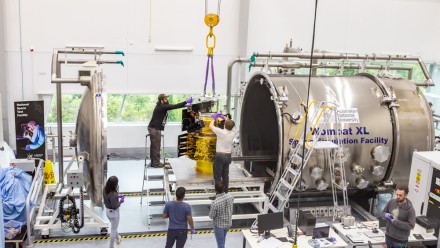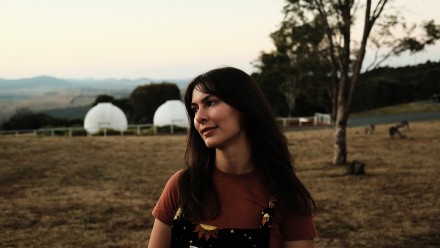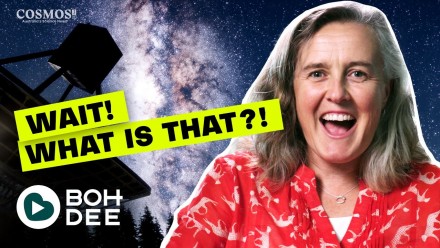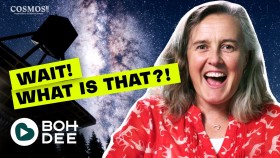Natalia Eiré Sommer
What is your thesis topic or research interest?
My research is on reverberation mapping with active galactic nuclei. That’s a whole lot of fancy words smashed together in a sentence, but what it really means is that I use “light echoes” to learn more about the closest regions of supermassive black holes. That in itself is already pretty cool, if you ask me. However, what excites me even more, is that I one day hope to be able to use this approach to learn about the nature of Dark Energy, the mysterious main ingredient of our Universe!
Where have you come from to join this program?
ANU is actually the fourth university I have attended. I started out studying at the Norwegian University of Science and Technology (NTNU), did a year of exchange at The University of Queensland (UQ), moved on to The University of Oslo (UiO), went back to UQ to do research for my Master’s degree, before finally coming to ANU for my PhD.
How did you become interested in Astronomy?
I have been interested in space since I was a kid; I remember looking up at the stellar sky using binoculars, trying to educate my fellow students about the vastness of the Universe, and trying to follow (what I believed to be) the sleeping pattern of astronauts. What actually made me pursue astronomy, though, was an excellent astronomy lecturer at one of my Universities, who expressed interest in doing an astronomy research project with me.
What experience have you gained while studying at Mt Stromlo?
I have been able to work with a large number of researchers from different collaborations, all working with the goal of learning more about the Universe we live in. It has been great, and it has allowed me to travel both domestically and internationally, something which broadens your horizons — both literally and figuratively.
What has been the highlight of the program for you so far?
I really enjoy being able to control an entire telescope by myself. It’s an amazing rush of power knowing that I am making such a large, expensive instrument move, and that in doing so, I am helping push science forward!
What do you see yourself doing upon completion of your PhD?
I would love to be able to continue doing research in my own field, but I know that the students are many, and the positions are scarce, so I try to keep my options open. Who knows? Maybe I find a university to work at? Maybe a research centre? Maybe I find a way of making science communication my career? Or maybe I leave science completely, and start working for a multi-million company?
Why would you recommend Mt Stromlo to others?
I love working at Mt. Stromlo, and I think it was the right choice for me. Everyone has to make their own decision, though, and think about what and with whom they would like to work with. One of the things I appreciate about my co-workers at Stromlo, is that they are open, honest, and eager to face problems head on, which I think makes everything much easier. Anyone looking to do a research project has to think carefully about what kind of person they are, and what kind of person they are likely to work with well. That is certainly the most important thing!
What are the benefits of life in Canberra?
As a small-town girl, I like that Canberra isn’t that big. I like the fact that even if you end up living on the other side of the city as your friends, it doesn’t take you all that long to drive over and visit them. I appreciate all the nature, and all the photogenic places you can go. It’s also good for stargazing, and astrophotography, which is one of my hobbies.
What advice would you give to someone considering studying Astronomy?
I am a strong advocate of people doing what they believe is right for them. So if you think astronomy is right for you, go ahead! Pursue it! Just go in with your eyes open, and be aware that you are more likely to have to leave the field that being able to stay.





